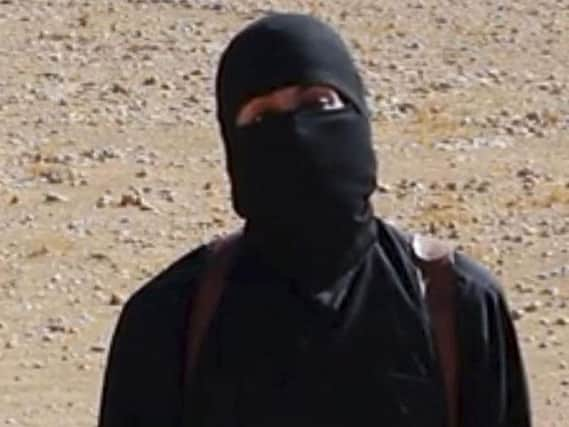Briton '˜planned UK terror plot'


Alexanda Kotey, from Paddington in west London, was held by Kurdish militia in January, and is thought to be among militants who helped guide and fund a terror plot that was foiled by police in September 2014, ITV News reported.
A pair of home-grown terrorists, Tarik Hassane and Suhaib Majeed, were given life sentences at the Old Bailey in 2016 for the plot to kill soldiers, police officers and civilians in a series of IS-inspired drive-by shootings.
Advertisement
Hide AdAdvertisement
Hide AdITV News said Kotey was in regular communication with Hassane, adding that the digital haul gathered by detectives in the investigation included commands sent by senior IS fighters in Syria.
A source who knew Kotey in Syria, told ITV News: “I was told that Kotey – or ‘Big Sid’ as he was known – was in direct contact with a guy called Tarik Hassane.
“He was the main source of inspiration for the plot. He helped direct the plot, telling them what to do.”
The source also told the news programme that Hassane was in direct contact with the IS leader Abu Bakr al-Baghdadi.
Advertisement
Hide AdAdvertisement
Hide AdHassane and Majeed, from west London, had links to the same mosque associated with Mohammed Emwazi, who achieved notoriety before his death in Syria as an executioner for IS.
Along with Emwazi – the killer nicknamed Jihadi John – Aine Davis, El Shafee Elsheikh, and Kotey are thought to have been part of a group named after the Beatles because of their English accents.
The four Londoners were linked to a string of hostage murders in Iraq and Syria during the bloody Islamist uprising and gained global notoriety.
Emwazi, who was killed in a US air strike in 2015, appeared in a number of shocking videos in which captives including British aid workers David Haines, who was born in Holderness,
Advertisement
Hide AdAdvertisement
Hide AdEast Yorkshire, but brought up in Perth, and Alan Henning were beheaded.
Davis was convicted of being a member of a terrorist organisation and jailed for seven-and-a-half years at a court in Silivri, Turkey, in May 2017.
Kotey and Elsheikh have been languishing in a cell since they were detained by Kurdish militia in January.
Last month, the pair complained that they cannot get a fair trial because the UK Government stripped them of their citizenship, and described the execution of hostages as “regrettable”.
Advertisement
Hide AdAdvertisement
Hide AdTheir capture sparked a row over whether they should be returned to the UK for trial or tried where their alleged crimes were committed.
Kotey said that many people in IS would have opposed the executions “on the grounds that there is probably more benefit in them being political prisoners”.
He told the agency: “As for my position, I didn’t see any benefit. It was something that was regrettable.”
The former Londoners are among hundreds of foreign fighters captured during advances that saw all of IS’s major strongholds in the country retaken, including its de-facto capital of Raqqa.
Advertisement
Hide AdAdvertisement
Hide AdLast December Iraq’s Prime Minister Haider al-Abadi said Iraqi forces had driven the last remnants of IS from the country.
In his State of the Union address US President Donald Trump warned there was “much more work to be done” in defeating IS.
The group can still inspire attacks in the West based on its ideology, and is trying to make inroads in countries like Afghanistan and Libya.